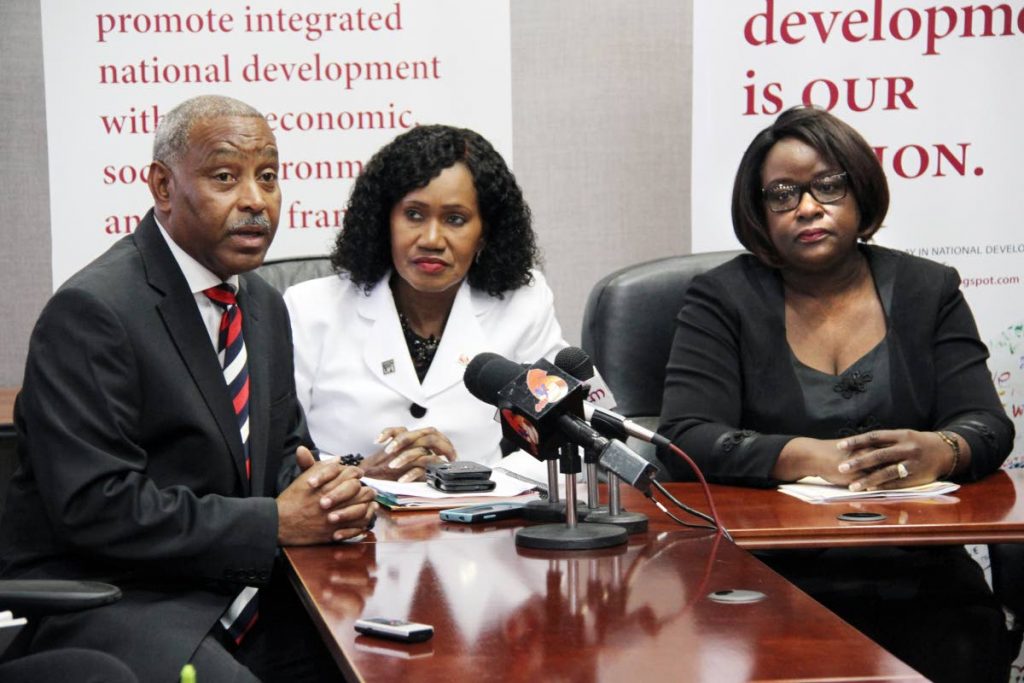Future of work in TT

If tripartism is fundamental to TT's success as a people, then there must first be a commitment by all parties to seek tripartite consensus, said Keston Nancoo, chairman of the Employer’s Consultative Association (ECA).
Speaking at a meeting on the Future of Work in TT: Why does decent work matter at the Hyatt Regency, Port of Spain, Nancoo said after much effort by successive administrations there is a continued struggle to accept tripartism as being fundamental to TT’s future as a nation with a stable economy.
Tripartism is the relationship between employers, workers/unions and the government to create mutually beneficial economic and productivty policies in a country.
“The value of tripartism is not a delusion. There are several examples of successful tripartite models across the globe, including Singapore, Portugal, Japan and various European countries. Of course, there have notable cases, even right here in the Caribbean, as we have seen with Barbados. The issues faced in these countries may have all been different, but the approach taken to overcome them and succeed remained the same, namely, tripartism.”
Nancoo said the achievement of the drivers of decent work will also require high levels of collaboration and consensus building if the decent work agenda is to be fully realised. He believes citizens must swiftly come to the realisation that “the majority of us live here” and that citizens must now walk the talk if they are to enjoy the best of what the nation has to offer.
“We must ask the question: what is in the national interest? Yet, also ask the fundamental questions: Are we doing our part as individuals – individual citizens, individual business and individual organisations? How can we achieve our own goals while helping others to achieve theirs at the individual and corporate level?"
Nancoo said achieving the decent work agenda cannot be a partisan process, and employers and employees must take responsibility and ownership for achieving a win/win outcome. He said it is not only crucial navigating uncertainties and expected changes that affect the future of wxork but is also vital to our sustained growth as individuals, businesses and as a nation.
“It is my view that any meaningful conversation on Decent Work and more specifically, why it matters, should start with everyone embracing the principle that decent work is key to sustainable development. This is being articulated in a world the ILO director, Guy Rider, describes as being buffeted by profound change and growing inequality.”
Kevar Cummings-Williams, deputy Permanent Secretary in the Ministry of Labour and Small Enterprise Development said TT citizens are currently witnessing unprecedented technological developments which are shaping and re-shaping lives in ways that were only imagined in the past. She said mobile communication devices, wearable technology and artificial intelligence, for example, have had significant transformative impact on personal and professional lives, and such developments require people to give very careful consideration to the future of work.
“This meeting presents the distinctive opportunity for social partners to consolidate an integrated approach to addressing pertinent labour issues. As we continue to work to promote social dialogue, inclusive growth, sustainable livelihoods and decent work for all, the need for enhanced collaboration and co-operation is therefore indeed underlined."
This commitment is also entrenched in the national policy framework of TT, through the National Development Strategy, or Vision 2030.
“Our own economic and social circumstances have indeed posed challenges, yet we have continued to place as priority the welfare of the people of TT in developing our responses. The ministry has held tripartite and multi-partite stakeholder consultations in the areas of co-operative development, industrial relations, retrenchment and severance benefits, contract employment, reform of labour legislation and the basic terms and conditions of work.”
Social dialogue, she added, has been the plank of the nation’s deliberations and has proven to be a vehicle for building consensus and synergy among the various actors in society.


Comments
"Future of work in TT"